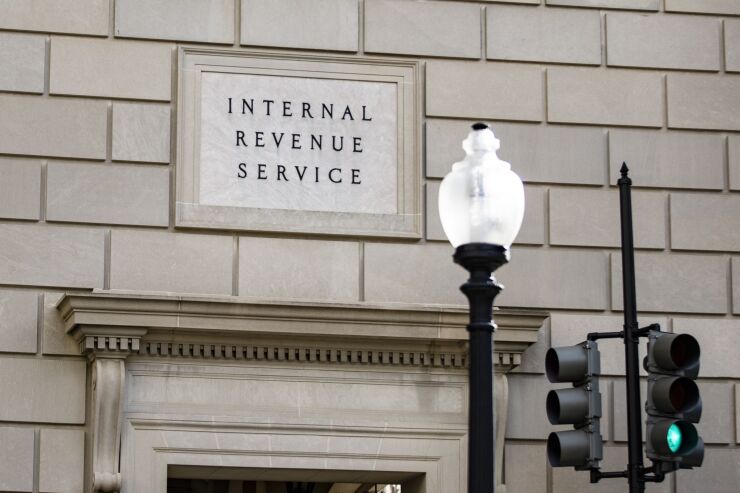Want unlimited access to top ideas and insights?
The latest wave of changes out of the Internal Revenue Service includes a host of relief measures, from
Throughout his campaign, Donald Trump made repeated pledges to institute tax breaks for
Following
Read more:
Funding for the IRS has been a particular point of contention for the Republican party, as seen with
"IRS funding is at significant risk right now," including both "the annual appropriation funding as well as the remaining IRA funding," said Rochelle Hodes, principal at Top 25 Firm Crowe LLP's Washington National Tax Office.
"The only question for me on funding is, will any portion of the funding remain available for taxpayer service-related improvements at the IRS?" Hodes said.
Hodes went on to highlight the
"If the view that is held by several Senate Republicans wins the day, then the cost of extending the expiring provisions will not be counted under those particular budget rules that are created dealing with extending current policy. … If, however, that view is not adopted, then there is a high cost just to TCJA, and so any other provisions with cost will sort of stretch the boundaries of what many in Congress would be comfortable with," Hodes said.
Read more:
Below is a compilation of noteworthy items out of the IRS last month.
IRS is cutting late filers of foreign gift forms a break
Article by

IRS executives announced last month that the agency will halt the automatic penalty process against taxpayers who delinquently file forms reporting foreign gifts and inheritance, following outcry from the American Institute of CPAs and National Taxpayer Advocate Erin Collins.
"By the end of the year the IRS will begin reviewing any reasonable cause statements taxpayers attach to late-filed Forms 3520 and 3520-A for the trust portion of the form before assessing any Internal Revenue Code § 6677 penalty," Collins wrote in a blog post last month.
The IRS followed up the change by emphasizing that it will begin reviewing the reasonable cause statements provided by taxpayers who late filed Forms 3520, Part IV, prior to assessing any penalties."This favorable change will reduce unwarranted assessments and relieve burden on taxpayers by giving them the opportunity to explain their situation before the IRS assesses a penalty," Collins said.
Read more:
IRS issues new benchmark for Sustainable Aviation Fuel Credit
Article by

Qualified mixtures are required under the credit, which was created by the Inflation Reduction Act, to have a reduction of at least 50% in life cycle greenhouse gas emissions in order to be eligible.
This change is the most recent entry in the saga of the SAF credit, with other notable entries like
Read more:
Tax-exempt groups avoid filing requirement for 2023 corporate AMT form
Article by

The IRS and the Treasury Department granted a joint filing exception on Oct. 23 for tax-exempt organizations, excusing them from submitting a
Both agencies said tax-exempt organizations, while not required to file, should still maintain a Form 4626 in their records as documented proof of whether or not they are indeed an applicable corporation for purposes of the AMT and if so, for determining any corporate AMT liability. Liable entities will need to pay the tax and record the amount paid on Part II, Line 5 of
Read more:
The return of PTIN season
Article by

The expiration date for tax professionals' Preparer Tax Identification Numbers is close at hand.
Both tax professionals and Enrolled Agents have until Dec. 31 to renew or obtain their PTIN for 2025 at $19.75 for the service. Those who currently have a PTIN will be notified by the IRS's Return Preparer Office of the deadline in the coming weeks.
Read more:
IRS releases annual inflation adjustments for 2025
Article by

The IRS issued its annual inflation adjustments on Oct. 22 for the 2025 tax year, featuring increases in standard deductions, tax credits, fringe benefits and more due to inflation.
These modifications are applicable to income tax returns filed in the 2026 tax season for the prior year with the agency's
Featured dollar-amount changes that are of express importance to filers include standard deductions.
For single taxpayers and married individuals filing separately for tax year 2025, the standard deduction climbs to $15,000 for 2025, an increase of $400 from 2024. For married couples filing jointly, the standard deduction rises to $30,000, an increase of $800 from tax year 2024. For heads of households, the standard deduction will be $22,500 for tax year 2024, an increase of $600 from the amount for tax year 2024.